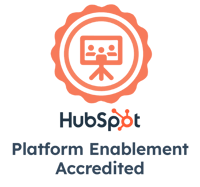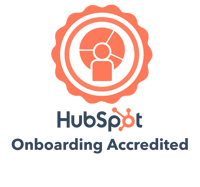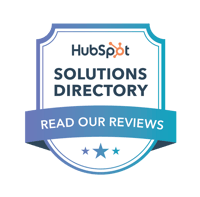You've probably heard the joke before - "where's the best place to hide a body?" ... "on the second page of Google search." Ranking highly on Google is definitely important. But how urgent is it to rank at the top of results in 2023, now that Google search results are a continuous scroll?
Here's what you need to know about ranking on Google in 2023.
How Important is Page One in 2023?
Telenicks conducted a survey to see how users search online. They found that only 6.6% of users are willing to go to the second page (or beyond on a Google search). They also found that only 57.7% of users are likely to scroll down page one to see additional results if they weren't satisfied with the top results. Additionally, research from Advanced Web Ranking shows that while 71.33% of searches result in an organic click on page one, page two and three only get 5.59% clicks. User behavior doesn't lie - page one is still the most critical for search results.
But that brings us to an important consideration - "pages" no longer exist in Google Search results. SERPs (search engine results pages) are now a continuous scroll.
Redefining "Page One" for Continuous Scroll
In December 2022, Google removed pages altogether from their search. Now it's a continuous scroll, or a page-free interface that keeps loading more results as you scroll down the page, to better mirror how mobile users engage with content. So how do you aim for page one if that no longer exists?
For that reason, for the rest of this post I'll refer to "Page One" in quotation marks - technically, it no longer exists. However, the principle is the same. When aiming for "Page One" rankings in a continuous scroll world, you want your website to show up in the first 10 results.
Removing pages really didn't impact how users engage with Google search results - we're seeing that users are still only engaging with the first 10-20 results they see (which in "old Google" would be Page One and Two). Likewise, the factors for ranking haven't changed substantively.
How to Rank on "Page One"
Ranking in the top 10 results on Google is often tough, and must be part of a larger search engine optimization (SEO) strategy. There are a few key steps to take to try and rank on page one.
1. Understand how Google ranks pages
Google's complex algorithm isn't entirely known to the public, but what is known is that it updates frequently, includes more than 200 "signals," and is geared around returning useful, relevant results. This sounds simple, but it's actually very complex.
It's not just about showing results that match the phrase someone types into Google - it's about the intent behind the search, what device is being used to search, the relevancy of the content, the reputability of the website and how the content is written.
→ Related Content: How Google Ranks Websites
2. Know keyword research and search intent
A keyword is a word or phrase you type or speak into Google. Examples include “florists near me” or “what is SEO?” Keywords are important to SEO because they help search engines identify what a specific page or blog is about.
Keyword research is a mix of database research, anthropological study, statistics and psychology. It’s matching what you know about your business with what people search for online. And in 2023, it's all based on user intent.
User intent is broken down into five basic categories, which sometimes overlap.
- Informational intent searches are based on gathering information, both basic and complex.
- Navigational intent searches point to a specific website. For example, searching "Facebook" into Google to try and get to Facebook.
- Transactional intent searches are based on retail or eCommerce - serving those who want to buy something.
- Commercial intent searches inform future purchases.
- Keyword intent searches use specific words that clue you into their intent - like "buy, deal, discount." This type of intent usually overlaps with one of the other four intents.
→ Related Content: Why Search Intent Optimization is as Important as SEO
3. Still do all on-page SEO
On-page SEO is the more technical application of ensuring a page is easy for Google to read. Even in 2023, this is still important to do. If your page is a piece of art, on-page SEO is the outline surrounding the colors of your other SEO work. Without it, Google can struggle to index your pages properly.
This includes the page title, URL, content and a few other elements.
On-Page SEO Checklist
Below is a checklist you can use when creating content to ensure that you’re following SEO best practices.
☐ Keyword in Meta Title
☐ Keyword in URL
☐ Keyword in Meta Description
☐ One H1 Tag on the Page (this will be the page title by default on WordPress)
☐ All Images Have ALT Tags
☐ There are Subheads on the Page
☐ Target Keywords Appear in the First 100-150 Words
☐ Body Uses Semantically Related Keywords
☐ Body Includes Internal Links to Other Areas of Your Website
Final Thoughts
Ultimately, ranking on "Page One" is critical to being found. A vast majority of Google users are going to click on the first 10-20 results they see, and the highest percentage of those users will only look at the first 10 results. So even without page delineation, aiming for those top 10 spots is crucial.
Free Guide: Beginner's Guide to Digital Marketing
This in-depth covers everything you need to know to get started with effective digital marketing
What exactly digital marketing is and how it works.
Explore a step-by-step process for running an digital marketing campaign in today’s competitive business landscape.
Best practices for your digital marketing strategy
We walk through how to implement a strategy using digital marketing, email, SEO, social media and online advertising.
How to measure the impact and ROI of your strategy
Make insights-driven business decisions and confidently present the value and impact of marketing efforts in support of top-level business objectives.
BizzyWeb is a Minneapolis-based digital marketing and web design agency that helps companies get the high-quality leads they need to grow and thrive. Our tactics include inbound marketing, SEO, advertising, web design, content creation and sales automation. We are an accredited HubSpot Platinum Partner and we offer full-service HubSpot onboarding, enablement and strategy for new and current users.






